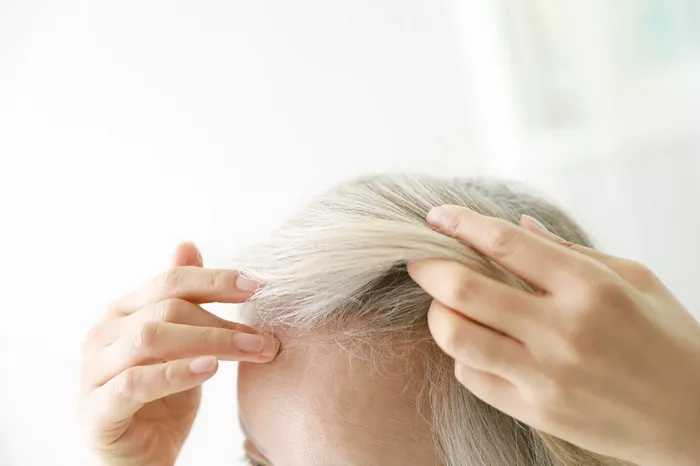Hair can reveal much about our internal health and is a significant aspect of our appearance. Thinning hair is a natural part of aging, especially due to hormonal changes, and while not usually a health concern, it can affect self-confidence.
Numerous treatments claim to revive dry hair, but substantial improvements often come from updating your hair care routine.
As women age, hormonal shifts, including an increase in male hormones like testosterone and dihydrotestosterone, can lead to changes in hair and skin, including pattern hair loss. Dr. Kleinfelder explains that these hormonal changes can also dull hair.
Can Hair Thinning Be Reversed?
Dr. Kleinfelder believes early intervention can reverse hair thinning. Maintaining and maximizing the thickness of existing hair is crucial for a fuller look. This can be achieved through various methods, including topical treatments, prescription medications, light therapy, lasers, and injectables.
Hair Care Basics for Women Over 50
Regular trims are essential to prevent split ends from traveling up the hair shaft. For thicker and shinier hair, consider using products specifically designed for thinning hair, such as clarifying shampoos. These products deeply cleanse the scalp, removing impurities that could clog hair follicles.
Dietary Tips
A healthy diet is vital for hair and skin health. Dr. Kleinfelder emphasizes the importance of a balanced diet rich in protein, vitamins, and minerals like zinc, selenium, copper, and vitamin D. Omega-3 and omega-6 fatty acids are also important, according to biomedical expert Kashish Golani.
Biotin, found in foods like eggs, supports hair, skin, and nail health. Golani advises incorporating biotin-rich foods and supplements into your diet. Hair growth follows a 90-day cycle, so patience and consistency with these dietary changes are necessary for visible results.
Scalp Care
Erim, a trichologist in training and founder of ByErim, recommends using an exfoliating scrub once a week to boost scalp health and enhance hair shine. This helps with product absorption, promoting thicker, shinier hair. However, over-exfoliating can dry out the scalp, so it’s best to use these treatments sparingly.
Following exfoliation, Erim suggests a deep oil treatment to nourish the scalp and hair. Consistency is key for long-term improvements, so incorporating these practices into your routine early is beneficial.


